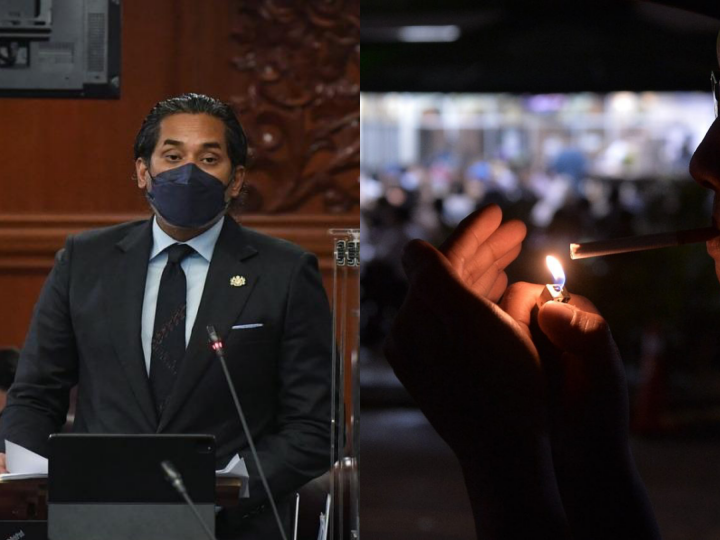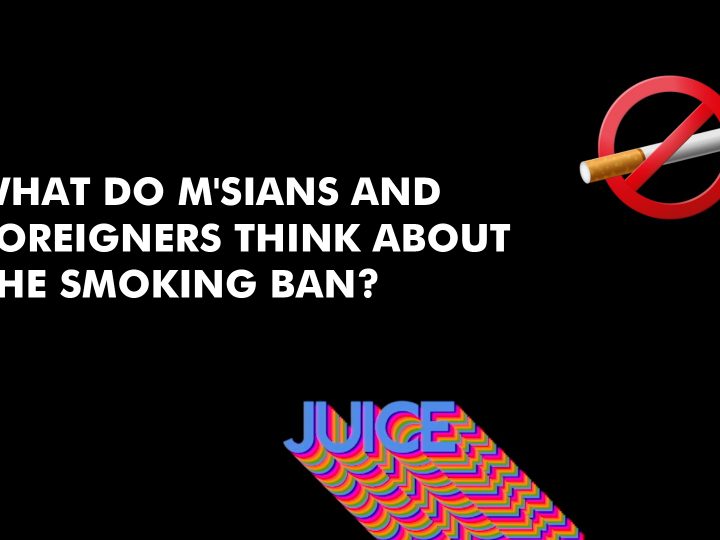Majority Of M’sians Support KJ’s ‘Generational End Game’ Smoking Ban, Law To Be Passed In July
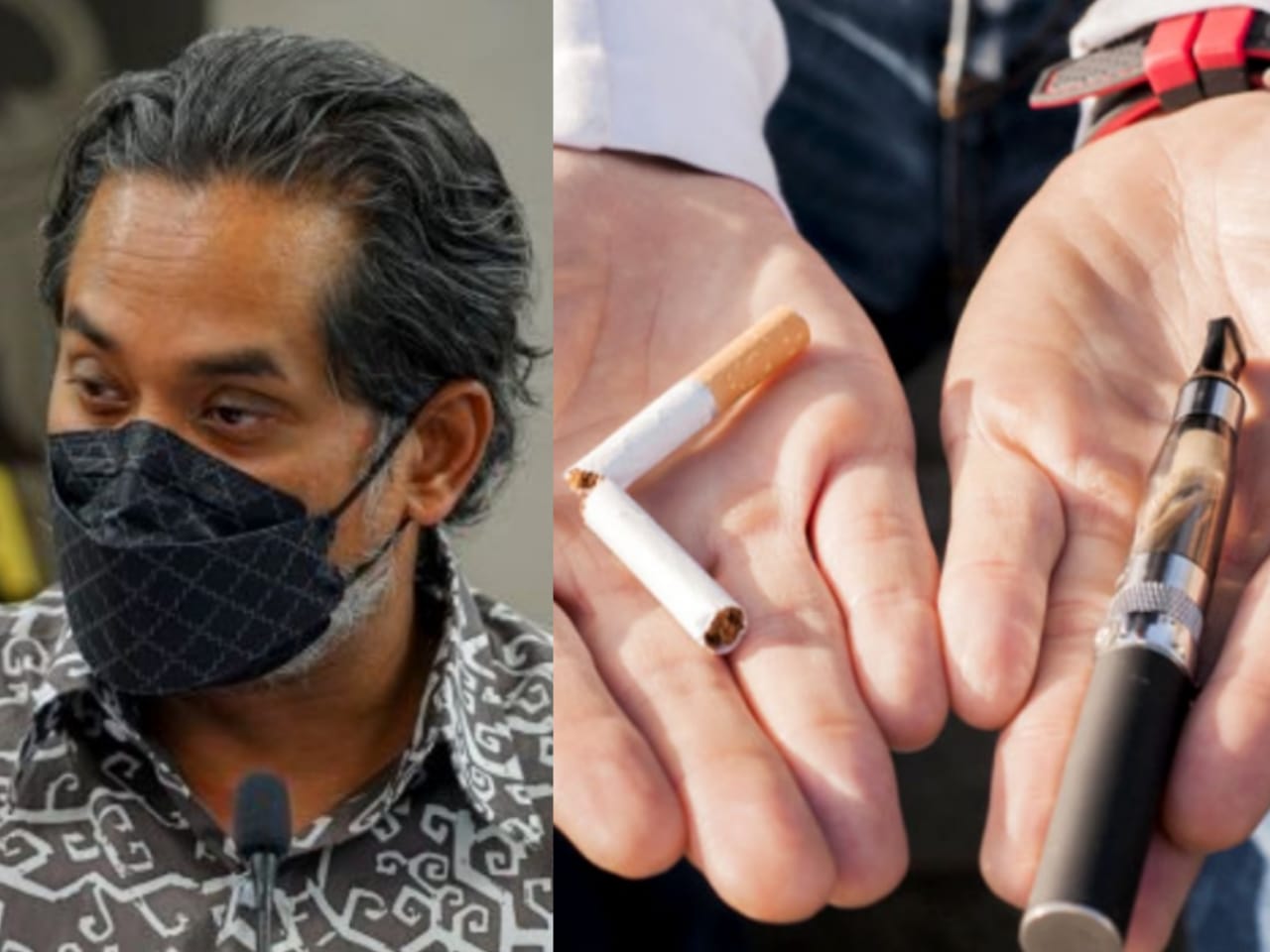 Thirsty for JUICE content? Quench your cravings on our Instagram, TikTok and WhatsApp
Thirsty for JUICE content? Quench your cravings on our Instagram, TikTok and WhatsApp
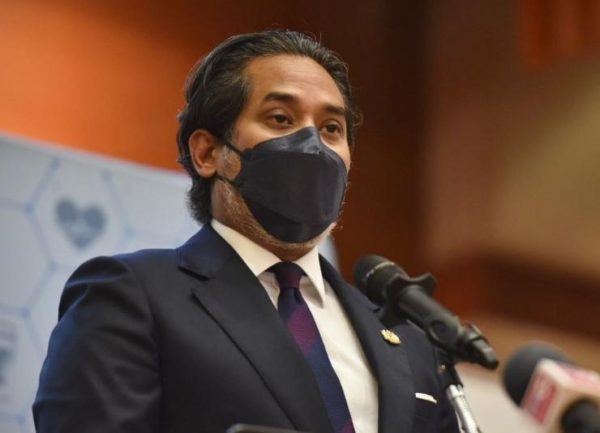
The Malaysian Green Lung Association, a non-governmental organisation for tobacco control registered with the Registrar of Societies in Malaysia, launched an online poll titled “Malaysian Acceptability of Generation End Game Policy: A Public Opinion Poll” from February 23, 2022 to March 13, 2022.
The study’s goal was to collect data from all Malaysians, with a cross-sectional focus on the youthful population of 24 years old and younger.
It showed that a large majority of Malaysians are highly supportive of the government’s Generational End Game (GEG) Policy, which aspires to adopt a bold new Tobacco and Smoking Control Act that will prohibit those born after 2005 from smoking or possessing tobacco products, including electronic cigarettes, or vapes.
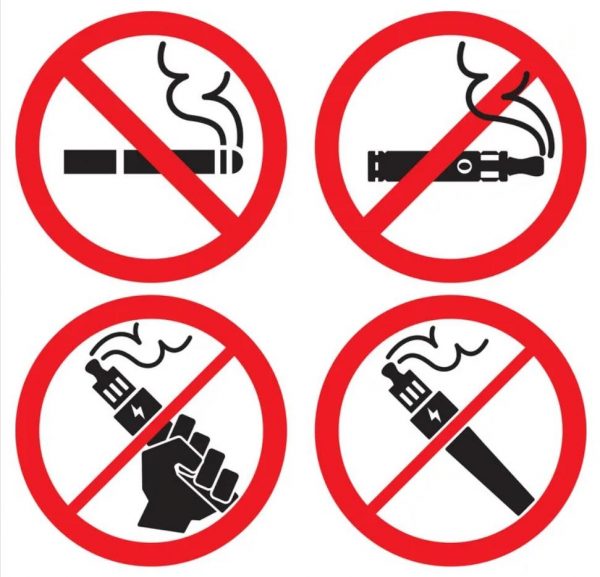
More than 97 percent of 928 people who took part in an online public poll said they supported the GEG. In terms of gender, the percentage of female participants (98.1%) who support the GEG is higher than the number of male respondents (97.1%).
According to the survey, 95% of adolescent respondents aged 24 and under, as well as 89% of smokers and vapers, approve the programme too.
The idea was also supported by the Southeast Asia Tobacco Control Alliance (SEATCA).
KJ previously mentioned that he sought to implement this new regulation in order to replace the Food Act 1983’s tobacco product control legislation.
He tweeted a video of himself announcing the matter in January.
“To me, the allocation for this generational endgame must be created to ensure that there comes a time when the new generations in this country will no longer know what a cigarette is,” he said.
Announcing Malaysia’s legislative plans for a tobacco generation endgame to not sell smoking products to anyone born after 2005 at the @WHO #EB150. pic.twitter.com/CfX44NurAB
— Khairy Jamaluddin 🇲🇾🌺 (@Khairykj) January 27, 2022
Today, also via Twitter, KJ said they will push on with the idea, this time with the support of citizens nationwide. The law, which he plans to pass in Parliament this July, will prevent the entire generation born after 2005 from ever getting a hold of these products.
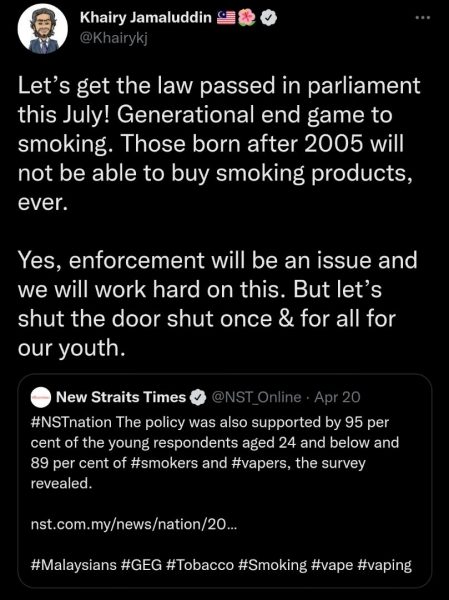
He ended the tweet by saying that while he knows enforcing the radical law will be a challenge, hindering the youth from harm remains his top priority.
The Malaysian Green Lung Association also noted that while some of the non-supporters’ worries were justified, issues like illicit trade and inadequate law enforcement have been going around for years and will likely persist, whether or not the GEG is implemented. In a 2019 report, Malaysia was named the largest consumer of illegal cigarettes in the world.
“These issues can be resolved given the right political will and stringent enforcement. There is no single best strategy for tobacco control, and a multi-pronged tobacco control strategy shall be adopted as recommended by the World Health Organisation,” it said.
Tobacco Atlas also stated, in regards to tobacco use in the country, “Tobacco harms the health, the treasury, and the spirit of Malaysia. Every year, more than 29400 of its people are killed by tobacco-caused disease. Still, more than 44,000 children (10-14 years old) and 452,8000 adults (15+ years old) continue to use tobacco each day.”
The site previously urged the country to raise taxes for cigarettes.

According to them, the combined revenues of the world’s six largest tobacco firms was more than USD 346 billion in 2016, which is 20% greater than Malaysia’s Gross National Income.
In 2016, cigarette imports in Malaysia outpaced cigarette exports, negatively impacting the country’s trade balance.
As of 2020, the World Health Organisation’s Framework Convention on Tobacco Control (FCTC) reported that around one in every five individuals in Malaysia, or 21.3 percent, currently smokes.
If the proposed legislation is approved by Parliament, Malaysia will be practising of the strictest anti-smoking measures in the world.


 Get Audio+
Get Audio+ Hot FM
Hot FM Kool 101
Kool 101 Eight FM
Eight FM Fly FM
Fly FM Molek FM
Molek FM